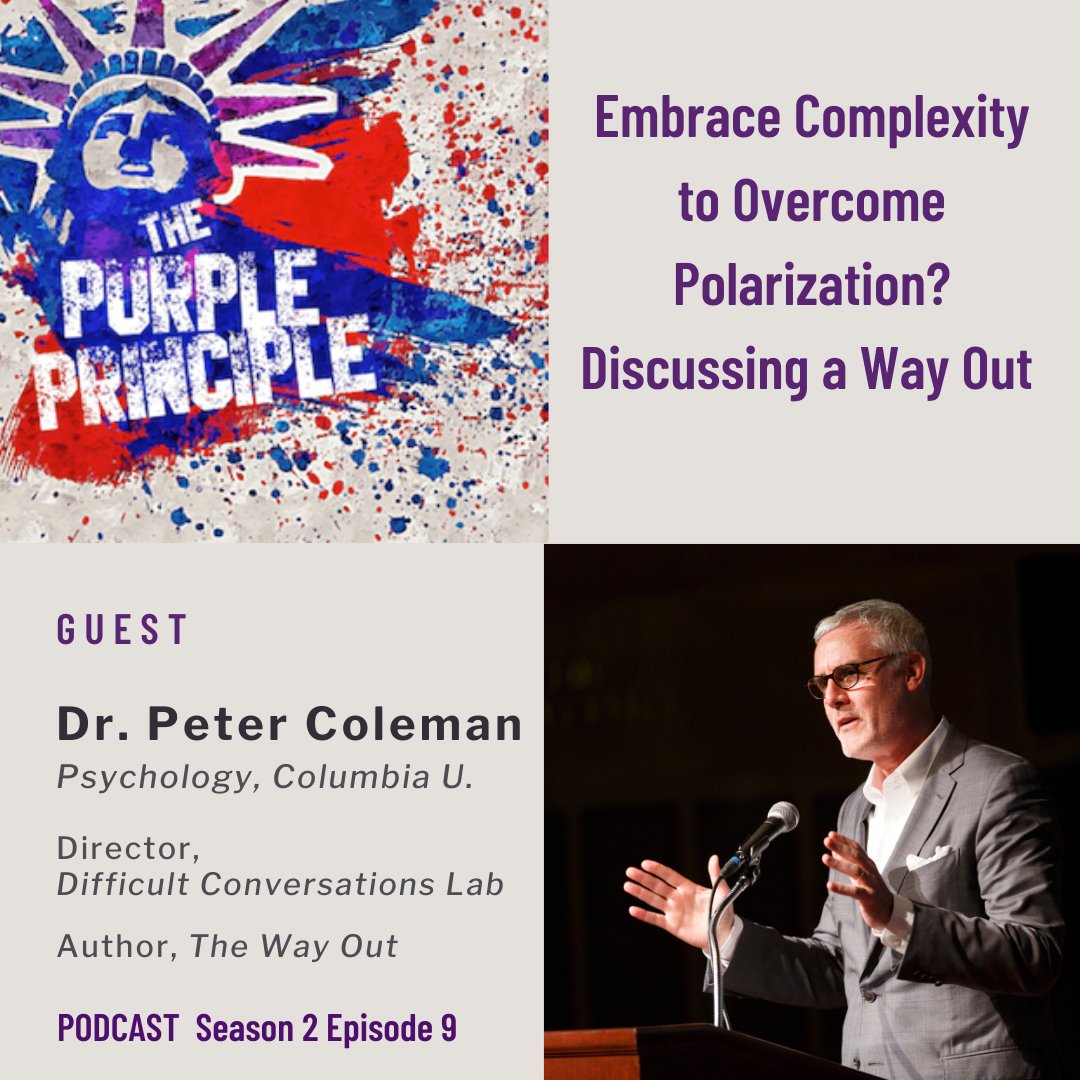Police reform, gun violence, global warming... When did you last have a civil, informative, productive conversation with someone of differing opinions on any of these hugely important but instantly polarizing topics?
In the current U.S. political climate, such conversations range from difficult to impossible to regrettable – or worse. The eminent social psychologist, Peter Coleman (Director of The Difficult Conversations Lab at Columbia University) is deeply familiar with this unfortunate situation and also with longstanding group conflicts within and among nations. Yet he remains optimistic enough to suggest a blueprint for reversing toxic polarization currently afflicting U.S politics and society.
In Episode 9, “Embrace Complexity to Overcome Polarization,” we speak with Dr. Coleman about the methods and examples at the heart of his book, The Way Out, recently published by Columbia University Press. For starters, everything is more complex than it seems – or should be.
“Certainty,” he states in this Purple Principle interview, “is the collapse of complexity.” He goes on to warn, “When you believe without a doubt that they are all idiots, misinformed and trying to harm our country. And you believe without a doubt that we are all victimized by their insanity, that's a problem.”
In Dr. Coleman’s view, embracing complexity is thus an essential first step on the way toward real dialogue and away from weaponized debates. He recounts a pop-up forum where he laid out this definition of dialogue, including self-examination and discovery, to a Facebook Executive. The response: “there is no major platform on the internet that promotes that.”
Undeterred, Dr. Coleman describes several hopeful examples that suggest how seemingly intractable conflicts can and do improve over time. Costa Rica, for one example, emerged from a bloody civil war with a broad consensus for change. This resulted in the disbanding of the armed forces and mandatory peace instruction in the schools. Closer to home, he describes Watertown, New York as a less polarized case in point. Sitting in deep red territory, this town rates as one of the least polarized in the country by several measures, including high rates of intermarriage between “red” and “blue” citizens (a metric in decline elsewhere in the U.S.).
To learn more about the lost art of real dialogue and the appropriately complex science of reconciliation, tune into Episode 9, “Embrace Complexity to Overcome Polarization: Discussing a Way out with Dr Peter Coleman, of Columbia University.”
